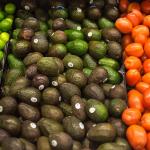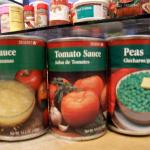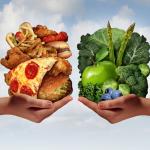You can find the article here.
SNAP
The Trump administration’s has proposed to create deliverable food for SNAP participants, a "Blue Apron” for those without disposable wealth.
The Trump administration has recently proposed a rather drastic change to the Supplemental Nutrition Assistance Program (SNAP).
People getting federal food assistance from the SNAP program (Supplemental Nutrition Assistance Program), formerly called Food Stamps, can use them to purchase a variety of items as specified in the program
The USDA announced last week that on-line providers of fresh food would begin participating in a pilot study with the Supplemental Nutritional Assistance Program (SNAP).
It's probably the biggest issue in the nutrition world — no, not the Fat vs. Carbs dispute — but how to motivate people to make healthy food choices.







